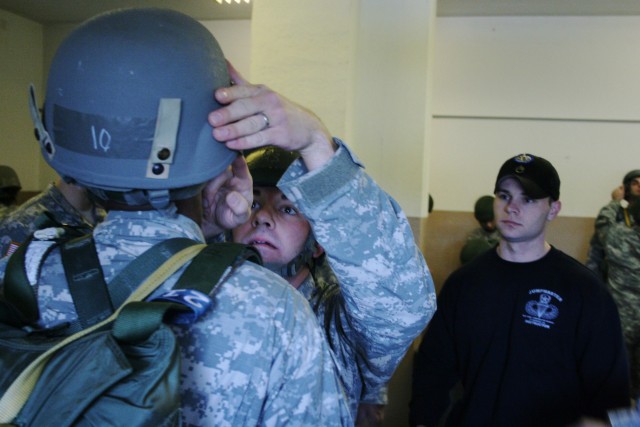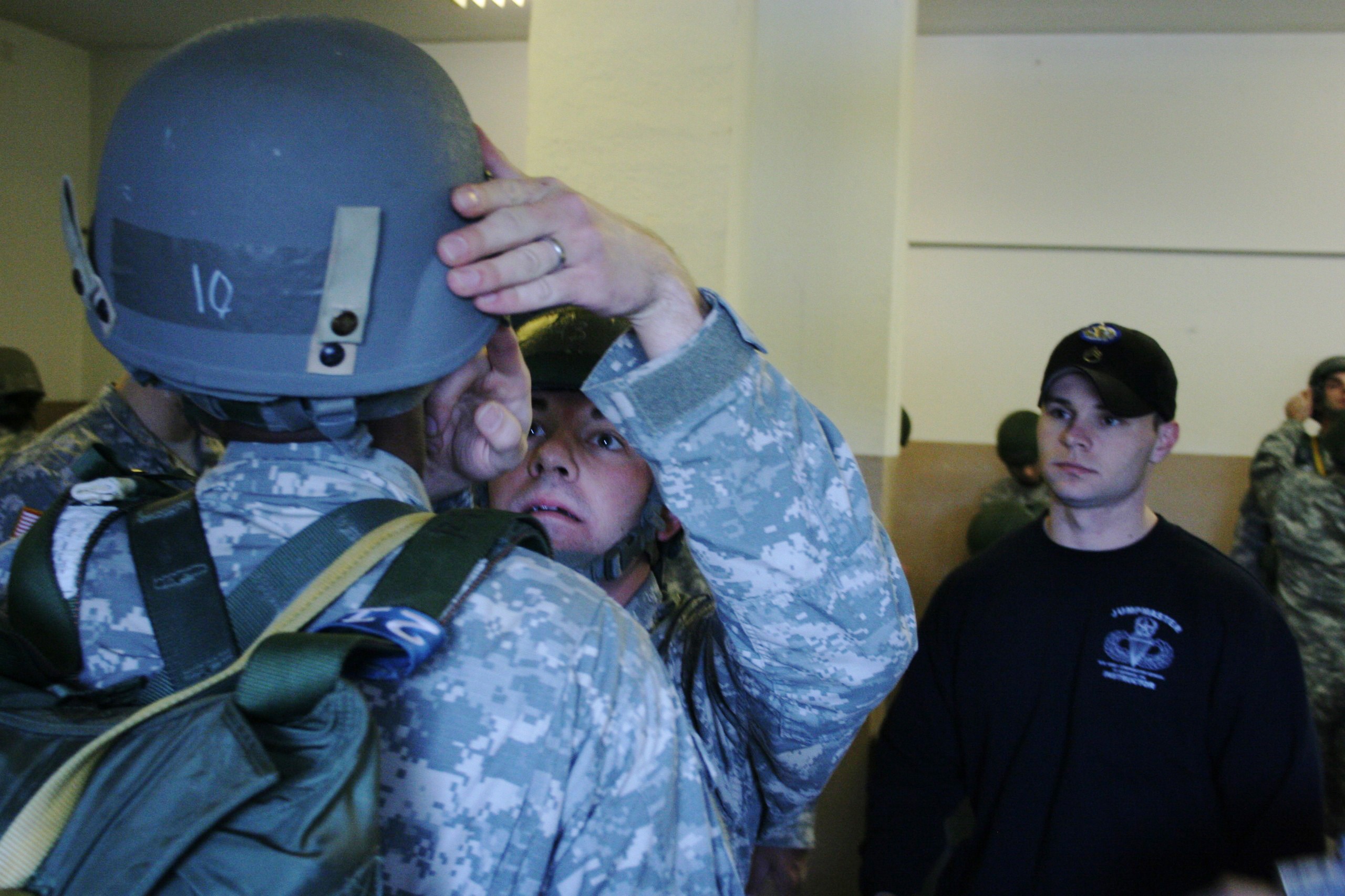
BAMBERG, Germany -- Six weeks, two duty stations, and 115 students later, the cost for 11 jumpmaster instructors to travel on temporary duty to certify new jumpmasters has proved to be a success.
The jumpmasters, who were part of a Mobile Training Team from 1st Battalion, 507th Parachute Infantry Regiment, traveled from Fort Benning, Ga., to both Vicenza, Italy, and Bamberg to teach a three-week jumpmaster static line course to Soldiers of 173rd Airborne Brigade Combat Team.
Jumpmasters supervise paratroopers or parachutists who jump from an airplane.
Having an MTT travel overseas to provide 173rd ABCT paratroopers jumpmaster instruction has a variety of benefits, said Sgt. 1st Class Jeffery Bond, senior instructor for the MTT.
"It gives the unit the ability to save money and gives them the maximum bang for their dollar," Bond said.
When units provide training to their personnel, the cost of the training usually becomes the unit's responsibility.
Although most of 173rd ABCT is stationed in Germany, the classes had a similar amount of students, Bond said. The student to instructor ratio is about four or five student for every one instructor. Bamberg started with 60 students and Vicenza had 55 students.
It's a price difference between sending 115 paratroopers to Fort Benning for training as opposed to bringing over 11 instructors to teach the course, said 1st Lt. Bill Hackenbracht, Headquarters and Headquarters Company, 173rd Brigade Support Battalion.
Bringing the training here "doesn't take Soldiers away from their family," Hackenbracht said. "It takes care of Soldiers and saves money.
"It's a win-win," he said.
Bond said he completely agrees with Hackenbracht's assessment and believes the returns far outweigh the drawbacks, but added the biggest downfall of an MTT is the absence of the training environment mentality.
"There are more distractions for the students," Bond said.
The need to focus on the objective of passing the course is important, Bond said, and to pass the course, the jumpmasters in training need to be disciplined and study.
Even if many students failed the course, Bond said, the cost analysis far out weighs sending students to Jumpmaster School individually.
The jumpmaster MTT only offers five jumpmaster training courses a year, he said.
Since the Airborne Jumpmaster School is a joint service school, the training can be for Marines, Air Force, Army, or Navy personnel, Bond said. The Jumpmaster training can also extend beyond joint service training and incorporate personnel from other countries.
Some personnel from foreign armies travel to Fort Benning to attend jumpmaster training, Bond said. The MTT allows foreign army personnel to attend the MTT training if the unit's leadership wishes to extend an invitation to their counterparts.
However, the 173rd ABCT did not do this because there was a high priority to get the personnel in the unit trained and certified to be jumpmasters.
Due to the increased operational tempo associated with the Long War, Hackenbracht said, some of the unit's Soldiers needed to be certified.
Hackenbracht said this training from the MTT should provide the brigade with 75-100 new jumpmasters, which is important to the unit's identity.
"We're the only airborne brigade in (U.S. Army) Europe," Hackenbracht said. Getting the brigade back to sustainable operational levels is a matter of importance and is essential to the esprit de corps of the unit.
Bond not only expressed the importance of officers being jumpmaster qualified because of their inherent position, but he emphasized the importance of noncommissioned officers to aspire to be jumpmasters.
"It's important for NCOs to seek this training," Bond said.
NCOs lead by example and should be the first out the door, Bond said. Several NCOs attended the course.
"This right here makes the unit that much stronger," Bond said.

Social Sharing